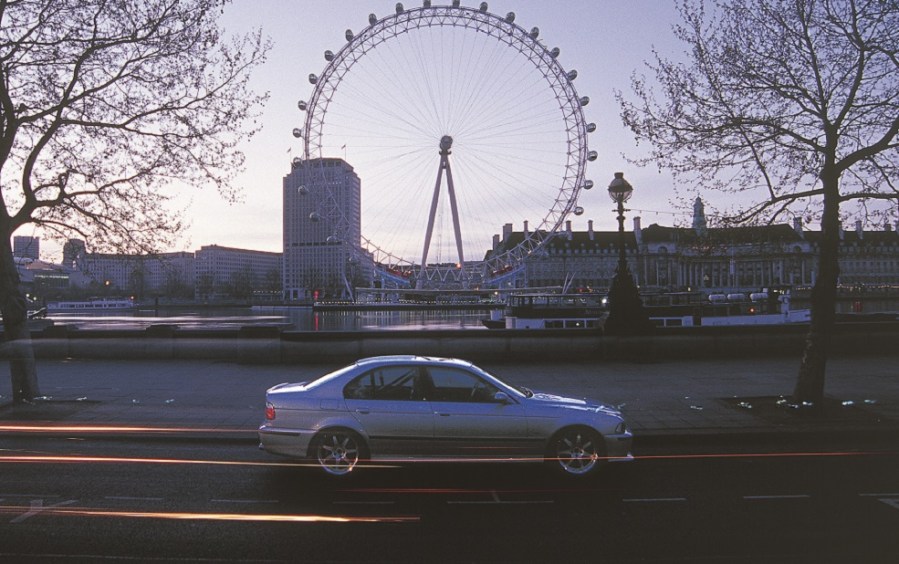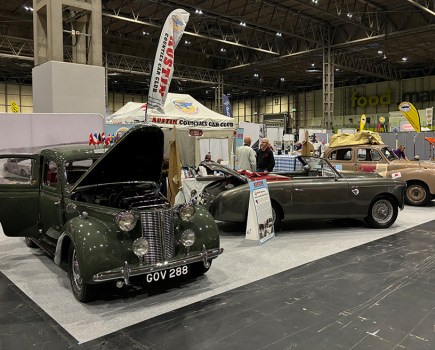The threat of a scrappage scheme removing classics from our roads is to return, but this time it’s taking a new form. On Valentine’s Day, Mayor Sadiq Khan announced a £23million ‘scrap for cash’ fund to help Londoners avoid having to pay his new £12.50-a-day Ultra Low Emission Zone (ULEZ) pollution levy. Low-income motorists who drive an old car in central London will be able to scrap them in exchange for travel credits, as well as for newer cars.
According to Mayor Kahn, the scheme will not be launched until later this year. Speaking to Radio 4’s Today programme, he said that the subsidies are aimed at Londoners who “face serious financial pressure in upgrading to greener options”, but details of how many drivers qualify and how much money they may receive have yet to be revealed. The subsidies will be in addition to a £23m fund already announced in December to help the capital’s “micro businesses” — firms with fewer than 10 employees and regularly operating in central London — to buy a cleaner van. In total, the Mayor will provide £48m worth of scrappage to help those who face “serious financial pressure” in upgrading to greener options.
Caroline Russell, chair of the London Assembly Environment Committee, welcomed Khan’s announcement. “We have always agreed that the Ultra Low Emission Zone was a necessary tool to combat London’s filthy air,” she commented. “We even urged the Mayor to go further and faster. Hopefully, this extra money will persuade many more Londoners to play their part by ditching polluting vehicles.”
Classics threatened
Beginning on April 8, the new ULEZ zone –which is also the current congestion charge zone – covers eight square miles. However, the expanded ULEZ from October 2021 will cover 146 square miles, surrounded by the North and South Circular roads, meaning it’ll be 18 times the size.
Although speculation at this stage, we can draw some conclusions as to which motorists are to be offered scrappage payments by looking at what vehicles will be affected by ULEZ. It applies to pre-Euro 6 diesel cars and vans, which are generally those registered before September 2015 and pre-Euro 4 petrol cars licensed before 2006. As with the current T-charge, all vehicles that have a historic vehicle tax class on the regular 40-year basis will be exempt from the ULEZ.
Of course, that still leaves up to 25 years-worth of younger petrol cars and modern classics that aren’t compliant, and up to 35 years-worth of diesels. Research published by UK100 suggests that the scrappage fund could pay for nearly half a million (488,647) older polluting cars, vans and buses to be taken off the roads. The natural conclusion is that a scrappage offer could be offered to many thousands of motorists, depending on income, which could wipe out a sizeable proportion of classics and future classics.
The new scrappage fund will go some way to alleviating the criticism that the ULEZ levy is a ‘tax on the poor’, penalising drivers not able to afford a new car. However, the risk it puts on our motoring heritage is certainly worrying, even without taking scrappage threat into consideration. Classic car traders and dealers in the zone look set to face charges for moving their stock around and for test drives, while customers using specialists in the zone for mechanical work would also be affected. It will also mean an extra levy for younger classics on events such as the New Year’s Day Parade, or those exhibiting at the London Classic Car Show at ExCel London for example, which is located just within the extended zone.
On top of this, there are concerns that scrap for cash could go countrywide. Indeed, Mr Khan has already complained of having one hand tied behind his back because the Government had not backed a national scrappage scheme.
This is a subject that looks set to run and run, but it seems clear that life for owners of older cars that have not yet reached their 40th birthday is going to get harder and harder – in the Capital at least. Here at CCB, we’ll be watching this one closely.







